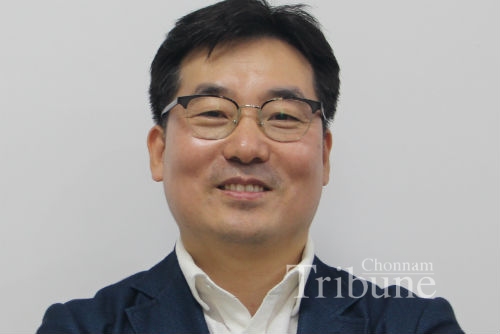
There are Chinese characters by which risk and opportunity are expressed simultaneously. They are in the word, ‘crisis.’ Human history has developed through the wisdom of overcoming crises or disasters. The wisdom of overcoming is called innovation. In this post-COVID-19 time, I want to share my two disaster stories.
My first disaster story begins with Hurricane Katrina, which hit the southern United States one night in 2005. Because of this hurricane, my family had to enjoy summer for a week without electricity in the United States. Could weather forecasts have predicted that what everyone thought was going to be an insignificant, familiar summer hurricane would break down the banks surrounding the city? As the embankments collapsed and became a major issue in the United States, the first question we asked was, “Who is responsible?” However, it was known that banks were vulnerable to hurricanes, and records of requests to the federal government for remuneration of the banks just came out a few years before. Thus, it was determined to have been an anticipated disaster. The natural disaster caused hundreds of thousands to become refugees, patients in hospitals were neglected, and the city resorted to armed soldiers for policing. Sore wounds post-Katrina were healed by the silent activities of numerous non-profit organizations and volunteers in the midst of disbelief of the central and local governments in American society. In addition, education and research were actively conducted on what could minimize the damage of disasters to come. Reflective efforts were actively conducted on how to treat the trauma of students who lost their families. The aftermath of hurricane Katrina once again philosophically reminded us of the fundamental definition of education, that is, the process of identifying current problems through reflective thinking and preparing knowledge to predict the future.
My second disaster story is a virus-derived disaster. Since December 2019, the coronavirus has created a global shock and brought social distancing to domestic and international society. It has renewed the public's interest in solutions to the fear of invisible infectious life and the response to biological disasters. However, we easily forget the past. There are viruses that appear frequently in newspapers, especially in the winter, such as norovirus. Every year in the world, 200,000 people die of Norovirus, and 100,000 children under the age of 5 die. If human excretion is poorly managed due to the increase in population and environmental pollution, more people will be exposed to water and food contaminated with Norovirus and suffer from gastroenteritis lasting longer than one week. In order to minimize the damage of such a virus-induced accident, various bean protein studies have been performed and developed as a candidate protein drug that can target norovirus and coronavirus. The study that we developed was used to solve social problems when a foodborne norovirus outbreak occurred before the opening ceremony of the 2018 Pyeongchang Winter Olympics.
In summation, there was one question that I asked my advisor during my undergraduate years. What fields should I study in the future? The professor's answer to this question was to find and try something that no one has yet tried. In order to find the answer to this answer, I attended domestic and international conferences and learned trends; but in the end, finding the answer was not as easy as I thought. In the end, I found that a new story that could not be taught in textbooks was in the industrial field through forming trusting relationships and observing what the field difficulties were. Post-COVID-19 life has made me realize that being concerned and having an active response to the problems of neighbors is the thing that protects me the most in an era when the problems of neighboring countries are a problem in Korea.
By Kim Du-woon, Professor, Division of Food Technology and Biotechnology
김두운 농식품생명공학부 교수
tribune1968@cnumedia.com

